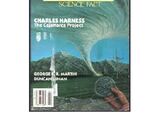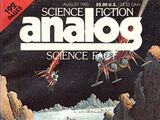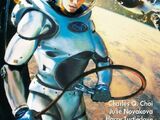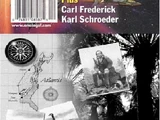Analog Science Fiction and Fact is an American science-fiction magazine published under various titles since 1930. Originally titled Astounding Stories of Super-Science, the first issue was dated January 1930, published by William Clayton, and edited by Harry Bates. Clayton went bankrupt in 1933 and the magazine was sold to Street & Smith. The new editor was F. Orlin Tremaine, who soon made Astounding the leading magazine in the nascent pulp science fiction field, publishing well-regarded stories such as Jack Williamson's Legion of Space and John W. Campbell's "Twilight". At the end of 1937, Campbell took over editorial duties under Tremaine's supervision, and the following year Tremaine was let go, giving Campbell more independence. Over the next few years Campbell published many stories that became classics in the field, including Isaac Asimov's Foundation series, A.E. van Vogt's Slan, and several novels and stories by Robert A. Heinlein. The period beginning with Campbell's editorship is often referred to as the Golden Age of Science Fiction.
By 1950, new competition had appeared from Galaxy Science Fiction and The Magazine of Fantasy & Science Fiction. In 1960, Campbell changed the title of the magazine to Analog Science Fiction & Fact, a change he'd wanted to make for some time. At about the same time Street & Smith sold the magazine to Condé Nast. Campbell remained as editor until his death in 1971.
Ben Bova took over from 1972 to 1978. He published a number of works that Campbell had rejected, and the character of the magazine changed quite a bit as a result. The magazine has changed owners several times since the 1970s. At present, it is owned by Dell. Starting in January 2017, the publication became bimonthly.
Harry Turtledove and Laura Frankos have each had multiple stories published in Analog.
-

Herbig-Haro -

The Road Not Taken -

Vilest Beast -

Bluff -

The Maltese Elephant -

Les Mortes d'Arthur -

My Hypothetical Friend -

Audubon in Atlantis
All items (40)





































